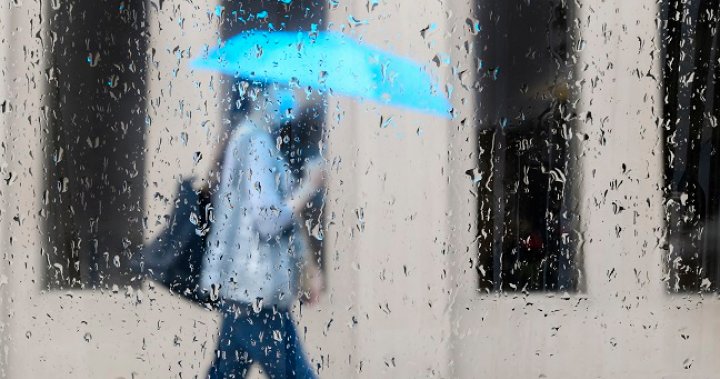A new report by Statistics Canada about increased instances of self-reported loneliness among immigrants is sparking calls for additional data and action to address the issue.
In a recently released article by the federal agency, researchers examined data gathered during the 2018 general social survey as well as information through other sources to assess the loneliness among immigrants and those who were born in Canada.
“Recent and long-term immigrants reported higher levels of loneliness than the Canadian-born. Moreover, loneliness did not appear to be alleviated by the length of stay in Canada,” researchers noted in the document.
READ MORE: ER doctor aims to fight loneliness ‘epidemic’ amid COVID-19
“Considering the mental and physical health ramifications of loneliness, the finding that immigrants report higher levels of loneliness pre-COVID-19 justifies continued attention in the coming years as Canada recovers from the pandemic.”
When assessing the information gathered looking at loneliness, researchers found comparable self-reported instances among newer (10 years or less in Canada) and longer-term immigrants — and both groups reported more loneliness than those between the ages of 15 and 64 born in Canada.
“These overall differences between immigrants and the Canadian-born were statistically significant, and similar in magnitude to the differences between the Canadian-born with low ($39,999 or less) and middle ($40,000 to $99,999) household incomes,” the report said.
READ MORE: What loneliness does to our mental health
“Differences in self-reported loneliness by immigration status changed little when group differences in age, marital status, mother tongue, education, employment status, and family income were taken into account.”
According to the report, it was found those who were separated, divorced or widowed reported being lonelier than those who are single or with a partner. Researchers also said those who had higher levels of education had higher instances of loneliness, which is the opposite for those who were born in Canada.
Aaliya Hakak is in her 20s and recently graduated with her Master’s in civil engineering at the University of Toronto. After coming to Canada two years ago from the Kashmir region of India, that has meant she spent most of her time in Toronto throughout the COVID-19 pandemic — something, she said, has weighed on her heavily.
“I was so lonely that I would go to the grocery store just to have that 15-second chat with the cashier,” Hakak told Global News while reflecting on the past year-and-a-half.
“I literally would not speak to a real human for days, and when I spoke to them it was an actual human interaction, I actually spoke words to a real human … I didn’t have a human to speak to.
“Even just speaking those words that I was going to take this and I require those many plastic bags, it just made me feel human at that point in time because I didn’t speak those words to anyone.”
With in-person classes being largely cancelled during the pandemic, Hakak said it was challenging to form bonds with classmates as fellow students stuck to regimented Zoom and Skype schedules.
“Everybody came for that 15-minute to discuss work and once the work was done, everybody went back to their own life. It never went beyond work,” she said.
Hakak said she lived in downtown Toronto and moved to Scarborough during the pandemic and even within the city, she said geography also factored into the interactions she was having. She said she generally found those downtown were less likely to engage in conversation compared to the area in Scarborough she is living now, but even so, the ability to make new connections has been limited.
“If I go to a coffee shop, the cashier would have those extra two seconds to greet me. I didn’t necessarily find that in downtown. In my downtown apartment, I didn’t meet my landlord but here I call them and send them greetings during festivals,” Hakak said, adding that even among her five former roommates who were all from different countries, they only communicated occasionally through Facebook.
“At this point, I am still am contemplating going back home because I don’t find this country probably has a lot to offer to me. I’m not talking about career-wise, I could get a rewarding career, but then the social life and the community life I haven’t found it here.
“So even if I spend a lot of money I can spend that on decorating my house or buying fancy stuff, but then there are no people to enjoy life with. I haven’t found them yet.”
Sadia Zafar, the manager of language and skills development programs with The Neighbourhood Organization — a social services agency that provides settlement services for immigrants, said she agreed with the high-level findings contained in the Statistics Canada report.
“If someone asks newcomers what is required to settle in Canada, most of the time things like getting a job, learning English, paying rent come automatically to our mind. But I think there’s a lot of focus on loneliness which is faced by immigrants, and the fact that they are facing it in their mental health,” she told Global News.
“It’s really stressful because even when you look back home when you were living together with your family and support system, sometimes we take it for granted and we don’t realize the importance unless we are in a new country when we don’t even know who is living next door to you.”
Read more:
Many seniors struggle with loneliness. The pandemic has only made it worse
Zafar went on to describe how mental health stigma here and abroad is potentially causing people to block out the indicators that people might need help.
“It impacts their economic stability as well as their overall life,” she said.
When asked about the general feelings described by Hakak and if others have expressed similar sentiments, Zafar quickly agreed.
“Yes, it’s a very common experience. Generally when you are new to the country, making those connections and developing a network already requires a lot of effort. But during the pandemic, it became more and more (difficult) because now you’re completely isolated,” she said.
“Definitely there is a big social impact.”
As for what should be done next, the report said there was a lack of sufficient samples — particularly in seniors, who researchers said are more prone to have higher levels of loneliness. While there were no specific recommendations stemming from the report, they called for additional data examining the issue as well as a broader awareness in order to potentially put in place measures to address loneliness.
“Self-perceived loneliness is an important indicator of well-being,” the report said.
“Loneliness is associated with stress, depression, anxiety, and has other mental health consequences. Loneliness is also associated with various physical ailments such as cardiovascular disease, high cholesterol levels, high blood pressure, and increased morbidity and mortality.”
READ MORE: Canadians are feeling lonelier than ever
Meanwhile, Hakak and Zafar both called for additional in-depth data as well as renewed community engagement efforts and increased opportunities for those experiencing loneliness to get together in a supportive way.
“It does seem like a small thing, but it’s very important to interact with people in real life,” Hakak said.
“I want places where people would be welcomed not based on who they are, just that people are allowed to sit together, explore and talk to each other about their cultures and make friends. It seems like such a big thing right now.”
— With files from Shifa Naseer
© 2021 Global News, a division of Corus Entertainment Inc.

















































